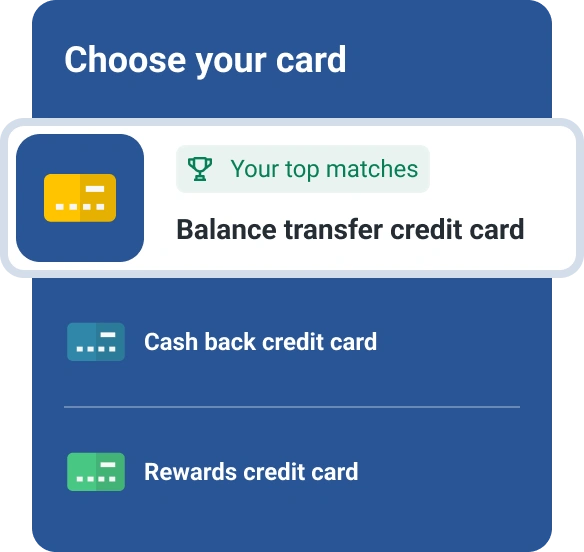How to Use a Credit Card Grace Period to Your Advantage

The grace period on a credit card makes it possible to build credit, earn rewards and get some time to pay off your purchases without interest charges. Generally, a credit card's grace period will give you at least 21 days to pay off your monthly bill interest-free, though some cards give you more time. Understanding what types of transactions qualify for the grace period and how to use yours to your benefit can make it easier to manage your money without going into debt.
Know What Transactions Are Eligible for a Grace Period
A credit card's grace period starts on the date that your monthly statement closes and ends on the due date of your monthly bill, which could be 21 days or more after your statement date.
Typically, only purchases you make with your credit card are eligible for the grace period. If you use your card to transfer a balance from another account, interest will begin to accrue immediately unless you have an introductory 0% APR balance transfer promotion on your account.
Cash advances also begin accruing interest the same day the transaction is made, and there's generally no introductory 0% APR promotion that will let you avoid these interest charges.
Know Your Card's Terms
Federal law requires credit card companies to provide cardholders with a statement at least 21 days before their due date. Some card issuers may offer longer grace periods, however, which gives you a greater opportunity to maximize the feature.
You'll want to figure out when your card's statement closes and when the due date will be. These dates are typically decided when you open your account, so they may not be the same across all your credit cards—even if they were issued by the same company.
If you have multiple credit cards, some issuers may allow you to change your due date so you can align them all together. This will make it easier to manage your payments and grace periods because you won't have to memorize multiple dates.
Don't Carry a Balance
One of the catches to having a grace period is that you'll lose the ability to avoid interest charges if you don't pay your balance in full each month. If you carry even a small balance from one month to the next, you'll be charged interest not only on the amount you didn't pay by the due date but also on all new purchases going forward.
If you lose your interest-free grace period because you've carried a balance, try to get caught up as quickly as possible to get that interest-free period back.
Plan Large Purchases
You can use your credit card's grace period to your advantage by planning your larger purchases in a way that maximizes your interest-free period.
For example, let's say your monthly statement closes on the last day of the month, and your due date is generally the 21st of the following month. If you need to make a large purchase, doing so on the first day of the month means that you have until the following month on the 21st to pay it off—that gives you roughly seven weeks to pay off the purchase without paying interest charges.
In contrast, short-term financing options like payday loans give you just a couple of weeks to pay back what you owe, and you'll typically pay fees equivalent to a triple-digit annual percentage rate (APR) in the process.
That said, it's generally a good idea to use your credit card to spend only what you can afford to pay back immediately. If you regularly rack up a balance without a clear plan to pay it off by the due date, you'll increase your chances of falling into debt and losing your grace period.
Be Careful With Intro 0% APR Promotions
If you get a new card with an introductory 0% APR promotion, it may offer the benefit on purchases, balance transfers or both. If the promotion applies only to balance transfers, you won't have a grace period on new purchases you charge to the card.
As a result, if you're planning on getting a balance transfer credit card, it's best to avoid putting purchases on the card until after you've paid off the transferred balance unless there's a 0% intro APR that applies to purchases too.
Also, remember that if you don't make your minimum monthly payment on a card with a 0% intro APR promotion, you may lose the promotional rate and be subject to the card's regular APR.
Don't Overspend for the Sake of Rewards
If you've opened a new credit card account to get an intro bonus, you'll typically need to spend a certain amount before you earn it. With cash back credit cards, the spending requirement is typically fairly low—spend $500 on the card in three months to earn a $200 cash bonus, for instance. But some of the top rewards credit cards require you to spend thousands of dollars in a few months to earn an intro bonus.
You may be tempted to spend extra to make sure you get the bonus before the deadline. But if you end up spending to the point where you can't pay off what you owe, you'll lose your grace period and have to pay interest. Depending on how much you spend and how long it takes to pay off the balance, you could end up neutralizing any value you get from the card's welcome offer.
Pay on Time and in Full to Protect Your Credit
Paying your credit accounts on time is crucial to establishing and maintaining a good credit score. If you miss a payment by 30 days or more, it'll be reported to the credit bureaus, and it can cause significant damage to your credit score.
While paying in full doesn't directly affect your credit score, it can help you maintain a low credit utilization rate, which is a major factor in your FICO® ScoreΘ. It'll also help you keep your payments low and affordable, making it easier to avoid carrying a balance and losing your grace period.
As you use your credit cards, be sure to monitor your credit regularly, which you can do for free with Experian, to keep track of how your actions impact your credit score and address potential issues as they arise.
Don’t apply blindly
Apply for credit cards confidently with personalized offers based on your credit profile. Get started with your FICO® Score for free.
See your offersAbout the author
Ben Luthi has worked in financial planning, banking and auto finance, and writes about all aspects of money. His work has appeared in Time, Success, USA Today, Credit Karma, NerdWallet, Wirecutter and more.
Read more from Ben

